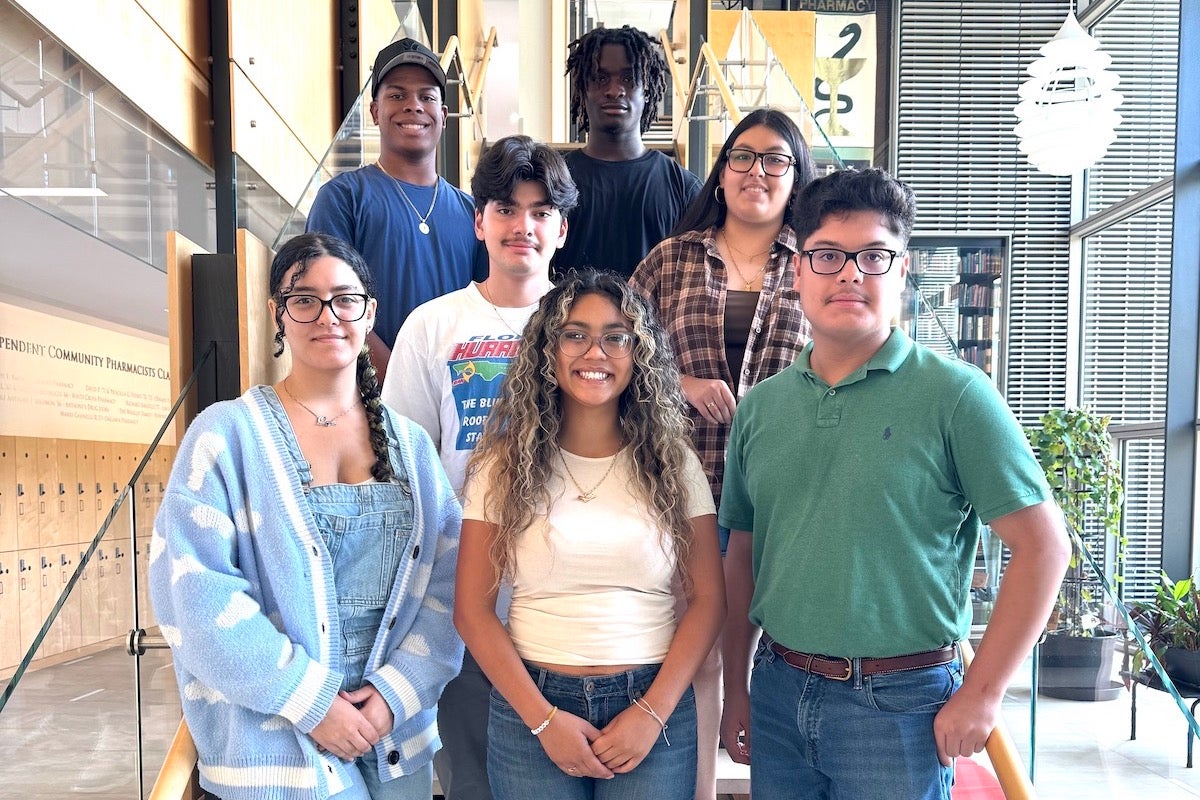ESTEEMED program at URI funded by $1.15 million NIH grant secured by Pharmacy and Engineering Professor Samantha Meenach
A group of students from underrepresented groups and/or disadvantaged backgrounds, who may not have otherwise had the opportunity, are pursuing studies in bioengineering and bioscience research programs at the University of Rhode Island, thanks to a federal grant secured by Pharmacy and Engineering Professor Samantha Meenach.
The Enhancing Science, Technology, EnginEering, and Math Educational Diversity (ESTEEMED) program is an initiative of the National Institutes of Health with the goal of developing scholars who embody critical thinking, engineering design, and fundamental research skills that enable them to develop an early scientific inquiry and research mindset. Through research mentoring, academic and social supports, professional development advising, and a stipend to cover the students’ expenses, the program aims to support the development of scholars’ STEM identity and foster their interest in research in biosciences and engineering.
Seven students are enrolled in this year’s program, in addition to five students from 2023. ESTEEMED provides students with stipends, allowing them to focus on their education and research projects without having to get a job. This incoming cohort represents four colleges at URI, majoring in pharmacy, engineering, chemistry, biology, and biotechnology, all with a concentration focused on health and treating disease.
“The NIH has a really good pipeline of training programs, specifically for training underrepresented and disadvantaged students,” said Meenach who secured the four-year, $1.15 million grant in 2023, as well as an additional $200,000 diversity grant to expand the program to seven students. “For the students, it shows them what their capabilities are and what they can do very early on in their academic experience. They’re not getting lost in the shuffle. The goal is to increase diversity in bioscience research, including engineering.”
The students, all from Rhode Island and enrolled in URI’s Talent Development program, begin the program with a five-week summer “boot camp,” then begin the semester a week early for the ESTEEMED orientation program. During the semester, they attend their regular classes in a STEM major that includes research in a medical, biological, or health-related field. The students meet weekly with ESTEEMED personnel for a seminar where they receive academic supports, learn the basics of lab research, and meet with several research professors in whose labs they may want to work. Further academic supports are also available beyond the weekly seminars.
The second semester is spent largely shadowing professors and research assistants in several labs on campus as they narrow down their research interests. Sophomore year is spent working under the mentor of their choosing, and conducting research in the lab for eight to 10 hours a week. All five students from the original cohort last year returned for their second year, and are beginning to work in various research labs on campus.
Students continue through increasingly technological bioengineering and biomedical research with their mentors, developing technical skills, and forming their scientific identity. Along with numerous community-building activities, the program will instill students with a sense of personal belonging and engagement within the STEM community, and promote participation toward advanced degree programs.
“The ultimate goal of the program is to prepare students to be doing really high-level research by their junior year,” Meenach said. “In general, it elevates URI’s research portfolio—the opportunities we can provide for students. This is an important place for people to do research. And the earlier the better. When you’re in a research group as a sophomore, you already have something you’re working for; it’s not just going to class. You have a group you’re a part of and this thing you are working toward. It puts most of them a little ahead of the curriculum.”

